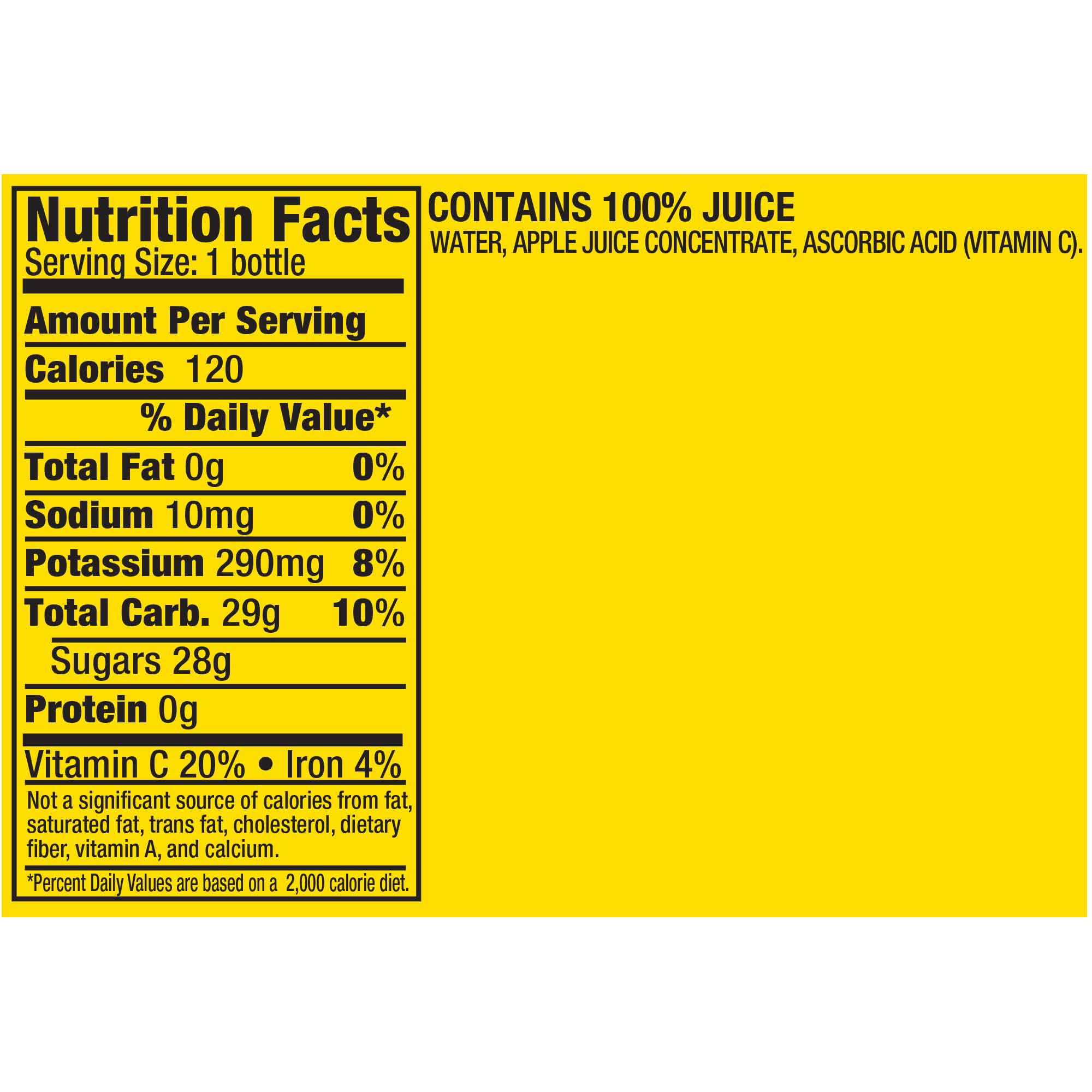
#Sugar apple juice label free#
Antioxidants are molecules that are able to expend electrons to other, unstable, molecules called free radicals to prevent cellular damage. Many of the health benefits attributed to phytochemicals are due to their antioxidant activity. The present review aimed to clarify the effects of apple juice consumption on health and disease prevention by summarizing the recent literature from interventional studies in humans. While epidemiologic as well as in vitro and animal studies have investigated the relationships between apple juice consumption and health, clinical trials have emerged in recent years as a way to provide evidence of great quality. A study based on data from the 2013–2016 National Health and Nutrition Examination Survey reported that 100% fruit juice consumers had a 10% higher Healthy Eating Index 2015 score compared to non-consumers as well as higher intakes of a variety of nutrients such as vitamins C and D, calcium, magnesium, potassium, and energy.

It has been reported that individuals consuming fresh fruit juice are closer to meeting the daily recommendations for fruit intakes. Indeed, a great advantage of juice is its ease of consumption, making it an interesting option, when taken with moderation, to take advantage of the health properties of fruits. Some experts affirm that whole apples have superior nutrient density, while others point out that juice or liquid forms can be more convenient. Although apple consumption has been associated with several positive health outcomes, fewer reports have documented whether apples consumed in different forms, like apple juice, pomace, cider, vinegar, and others, exert the same beneficial effects as whole fruits. Besides being very accessible, versatile, and inexpensive, apples have a high nutritional value and contain a wide variety of bioactive components, making them a fruit of interest. Since fruits do not have the same nutritional or energetic density, they are likely to have inequivalent properties, and thus it becomes relevant to investigate the contribution of specific fruits to disease prevention.Īpples are a good example of fruit that has caught the attention of researchers for several reasons. The protective effect of FAV consumption is likely due to their high content in nutrients, fibers, and phytochemical components, as well as their low energetic density. Many biologically active components in FAV can play a preventing role in the development of a various range of chronic diseases including cancer and neurodegenerative diseases, for which many studies have investigated the effect of different fruit supplementations on related markers such as Wnt signaling, mucosal proliferation and the neuronal response to working memory load conditions. However, the health benefits of FAV extend beyond their cardioprotective effects. This review suggests that, in 20 studies, apple juice consumed in moderation exerts positive effects on markers of cardiovascular disease risk (particularly on oxidative stress).ĭata from the scientific literature supporting that fruits and vegetables (FAV) consumption is beneficial for cardiovascular disease prevention are quite undisputed. Most of the documentation was found regarding oxidative stress, as well as observations with other parameters such as markers of inflammation, lipid profile, and diabetes.

Overall, cloudy apple juice consumption was found to be associated with several markers of cardiovascular health that may ultimately be relevant for cancer and neurodegenerative diseases. Of the 67 studies retained, 20 interventional studies on humans were reviewed.

The present review aims to summarize the current literature on health benefits of apple juice as reported in clinical trials in humans. Juice consumption may be a convenient way to take advantage of the health effects of the bioactive components present in apples. Although numerous studies have reported the benefits of apple consumption on cardiometabolic health parameters and chronic disease prevention, few have focused on the effects of apple juice specifically.


 0 kommentar(er)
0 kommentar(er)
